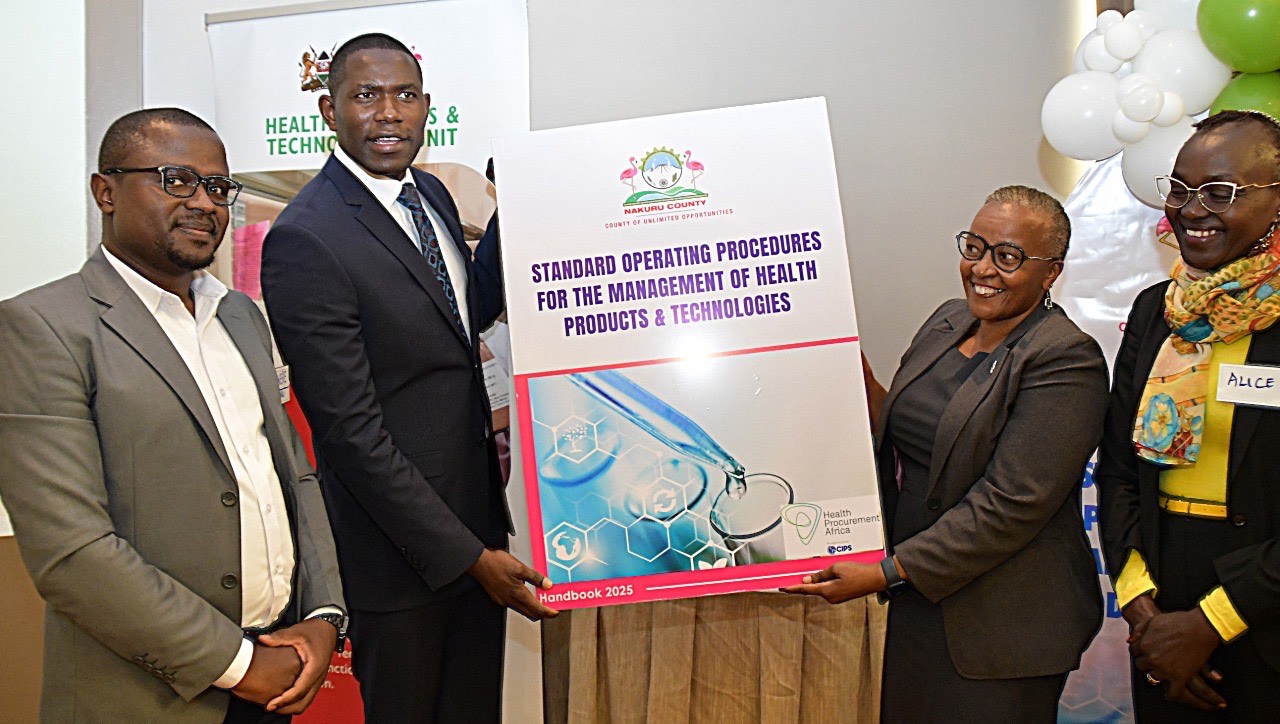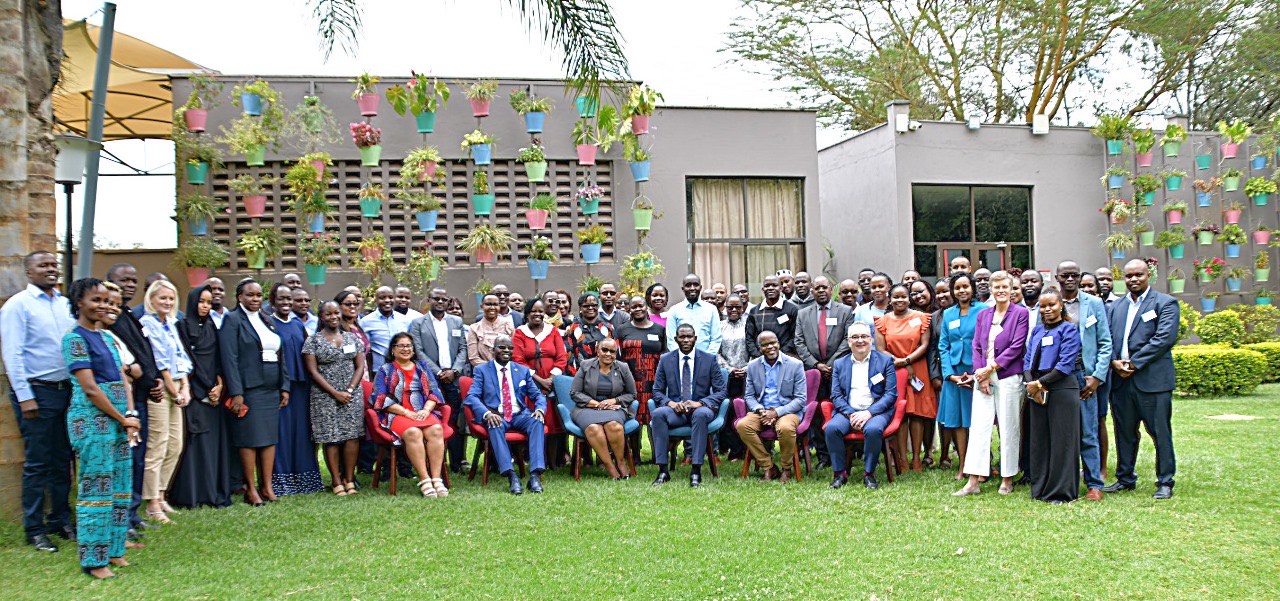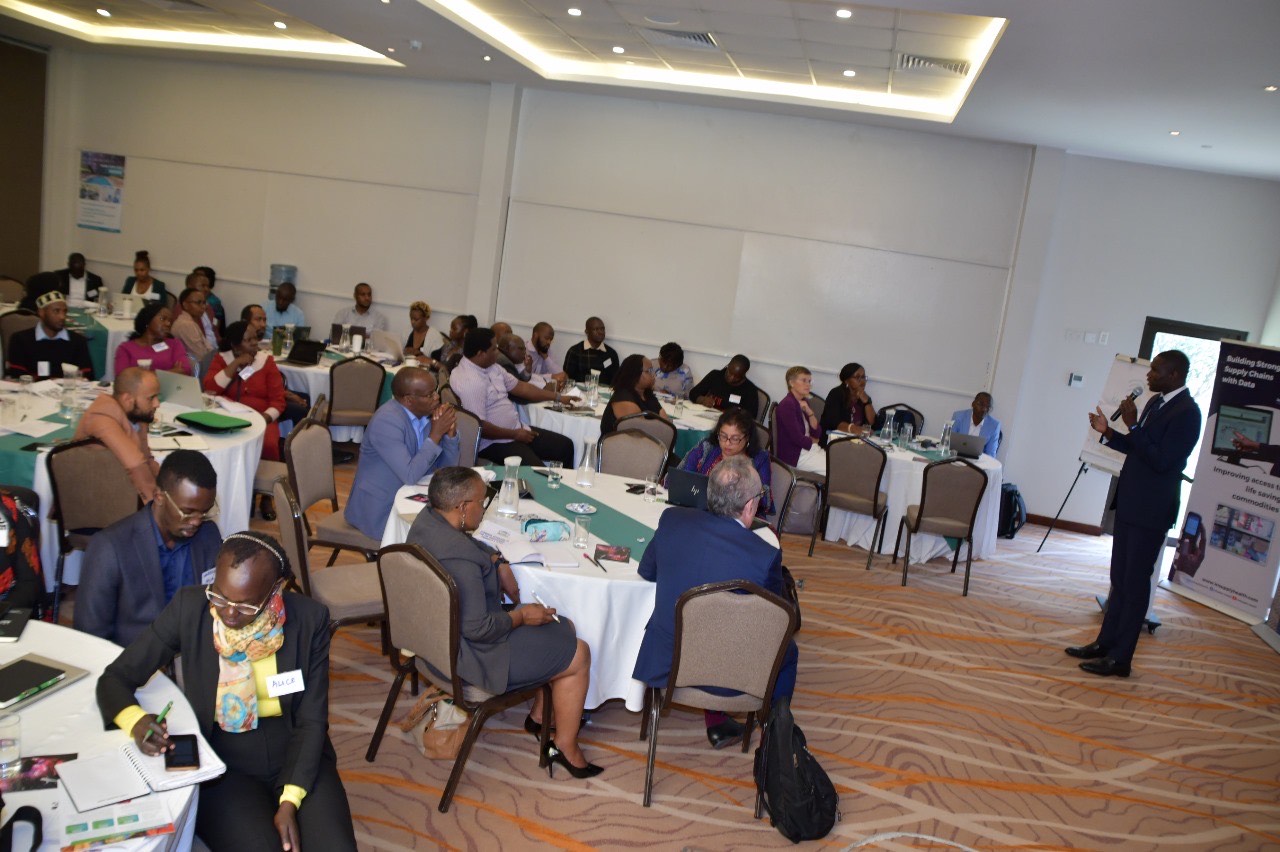Kenya Charts Path to Self-Reliance in Health Supply Chain
𝐍𝐚𝐢𝐫𝐨𝐛𝐢, 𝐊𝐞𝐧𝐲𝐚 - 𝐀𝐮𝐠𝐮𝐬𝐭 𝟐𝟕, 𝟐𝟎𝟐𝟓
Kenya is taking steps to strengthen its health products and technologies (HPT) supply chain, with a strong focus on self-reliance, sustainability, and efficiency.
At a high-level forum themed “A Shift Towards Self-Reliance and Sustainability in Health Products and Technologies Supply Chain in Response to the Evolving Funding Environment,” the Principal Secretary for Medical Services, Dr Ouma Oluga outlined three priorities to secure the future of Kenya’s supply chain.
These include strengthening procurement, warehousing and last-mile delivery systems; reshaping KEMSA to enhance efficiency in distribution and logistics; and reducing the cost of health products through expansion of local pharmaceutical and medical technologies manufacturing.
The PS observed that these measures are essential to address rising demand for health services, global financing shifts, and the increasing cost of medicines and logistics. “Building self-reliance in health supply chains is not only a strategic necessity but a moral obligation. We must invest in local capacity, innovation, and partnerships to ensure every Kenyan has uninterrupted access to essential medicines and technologies,” he said.
During the meeting, the PS launched the Standard Operating Procedures (SOPs) for Health Products and Technologies, designed to streamline processes, strengthen accountability, and improve efficiency across the supply chain. He was accompanied by John Karani, Chair of the Kenya Institute of Supplies Management, and Dr Tom Menge, Ag. Head of HPTs Directorate at the Ministry of Health.
The Ministry of Health is also rolling out digital supply chain systems through the Digital Health Agency to improve accountability, forecasting, and timely replenishment. The PS said government is exploring public–private partnerships in warehousing and distribution while pursuing pooled procurement to secure better bargaining power and lower costs. “Strengthening local manufacturing is a central priority to reduce import dependency and promote economic growth,” he noted.
The forum was attended by representatives from the Department of Health Products and Technologies (DHPT), the Council of Governors (CoG), and county governments from Isiolo, Trans Nzoia, Nakuru, Kakamega, Laikipia, Murang’a, and Nairobi. Also present were the Public Procurement Regulatory Authority (PPRA) and implementing partners including CIPS/HPA, InSupply, World Bank, Africa Resource Centre, ThinkWell, PATH, Ecumenical Pharmaceutical Network, MEDS, and KEMSA.
The PS reaffirmed the Ministry’s commitment to placing Kenya’s health supply chain on a sustainable path, ensuring that essential medicines and health products remain accessible to all citizens.




